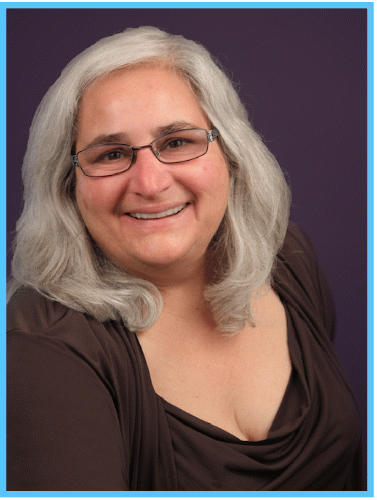My guest today is Emily Levy, long-time election protection activist, Founder and Director of Scrutineers.org.
Joan Brunwasser: Welcome to OpEdNews, Emily. What a cool name; it reminds me of a cross between buccaneers and Hercule Poirot! I'm assuming that's not what Scrutineers is. So, please share with our readers what it really is and why you started it.
Emily Levy: Great to be with you, Joan. I think you've got the flavor of what we're doing, more or less, with that comparison. Scrutineer is actually the word used for election monitors and investigators in many other countries. I came across it watching an Australian TV drama.
As you said, I've been working in election protection for a long time. And as we approached this election cycle, I realized some really important needs weren't being filled. For one thing, people focused on voting rights and people focused on election security weren't working together much at all. The voting rights movement primarily focuses on making sure people have and can exercise the right to vote. That work typically ends when the votes are cast. Election security work has centered largely around what happens to votes after they're cast: making sure they're counted accurately. These two parts of the election protection movement clearly need each other, and I wanted to work to build those connections.
The voting rights movement is clearly a movement. It's been around for a couple hundred years and is made up of at least dozens if not hundreds of organizations, and many thousands of people. Election security advocacy work hasn't really become a movement. Fantastic work has been done by a small number of people, most of whom come from tech backgrounds of one sort or another, not from community organizing backgrounds. They've developed effective ways of making elections more secure, and exposing vulnerabilities. But they haven't built the movement needed to put their plans into action all around the country. I wanted to do that, too.
One of the challenges I saw with building that movement was that there wasn't any place for people to go who were new to the cause and wanted to learn about the issues and how to take action.
That's been a challenge always for those of us working on what we used to call "election integrity" and now call "election security" or "election security advocacy." A few years back I helped Jon Simon, author of CODE RED, create a blog post that led people through the basics of the issue. Other than that, there was really nothing.
So I started the Scrutineers community to address all that: to bring together the voting rights and election security aspects of the election protection movement, to create a place people could learn about the issues and how to take action, and to build a movement.
JB: A brilliant concept, really. Kudos! How long has Scrutineers been around and how's it going creating a buzz? Every four years, there is tremendous focus on the presidential election. Yet, journalism as a whole has really fallen down on the job of alerting, educating and engaging our citizens about the dismal state of our elections on so many fronts. How can you succeed when corporate media, with all its resources, has spectacularly failed?
EL: Thank you, Joan. Scrutineers launched in January 2020, and I've been really pleased at how quickly a buzz seems to be growing, especially when compared with work I've done in this field in the past.
It's frustrating that it's still so hard to get corporate media -- and often even alternative media -- attention on election security issues beyond "Russian interference." The good news is that social media means we don't have as dire a need for their help as we did in the past. We have other ways to bring public awareness to issues. Social media attention can lead to mainstream press attention, and I hope it will when it comes to protecting this year's elections.
JB: So, Scrutineers is really new. What can you tell me about who's signed up so far?
EL: We have over 600 members, with more joining daily. How much time do you have?
(Note: You can view every article as one long page if you sign up as an Advocate Member, or higher).







